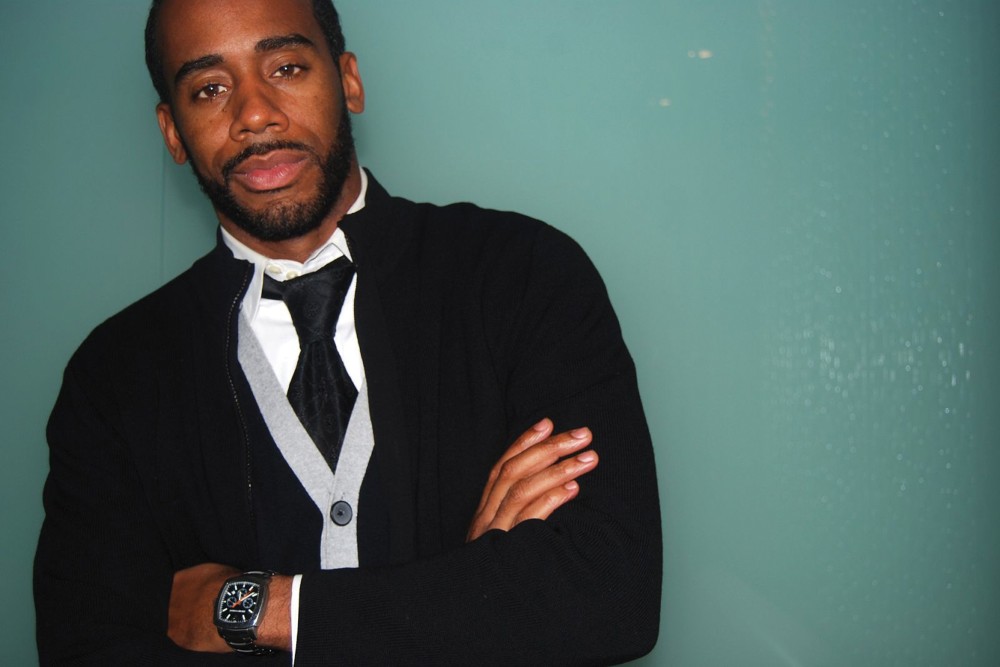Moving from diversity to community

Courtesy / Michele Coffill Jeff Johnson, spoke on Wednesday as part of the events for MLK week.
Jan 27, 2014
Campuses across America have entered the season of blackness.
Journalist, author and political commentator Jeff Johnson defines this as the period of time when it’s “acceptable” to be black on campus. The season extends from Martin Luther King, Jr. Day through the end of February, he said.
On Jan. 22, Johnson gave the keynote address for the Martin Luther King Jr. Commemoration Week at Grand Valley State University.
Johnson is a regular contributor to MSNBC and is the chairman of the Jeff Johnson Institute for Urban Development, an institution committed to recruiting and developing 80,000 African American male teachers.
“Jeff Johnson continues to be a trailblazing social entrepreneur and authentic voice for changes,” said Donald Mitchell, Jr., assistant professor of education at GVSU.
During his address, Johnson challenged students to go beyond diversity. He told them to build a community.
“How do you begin to navigate this whole notion of diversity,” Johnson asked. “Because it’s a bunch of nonsense on most days. I’ve seen the brochures. The one that’s got the black person, the white person, the Asian or Latino and then the ethnically ambiguous person sitting somewhere on campus.”
However, while on campus that scene is seldom viewed, he said.
“You can see diversity because I can point to the kid who is here from India, the kid who is here from Nigeria and the kid who has never seen a tall building before,” Johnson said. “I can check off all those boxes of gay and straight and religious and nonreligious, but where is the community?”
Johnson said that oftentimes at institutions of higher education students are afraid to engage in conversations about race and diversity. The conversations can be uncomfortable, and students only attend events that are required, enticed by the promise of class credit.
It’s easy to build diversity, Johnson said, but it’s hard to build community.
“How often do we challenge our own friends that are less enlightened than we are?” he asked. “We’ve got to be willing to do what’s uncomfortable to get to a place of building community.”
Johnson also challenged students to to think about the true definition of a leader, saying most leaders he meets today are selfish. He said many take on a position only because it will make them look good on resumes for internships.
“Those are the leaders that I meet more often whether they’re in the halls of government or whether they’re in civic organizations,” he said. “Because we have created a self-serving environment that believes leadership is about how I can get mine versus how I can provide a different reality.”
King understood there was something bigger than him, Johnson said.
“As we celebrate him it’s not about being him,” he said. “It’s about lifting up the things that made him courageous, that made him different.”
Prior to Johnson’s address, two awards were presented in recognition of a commitment to both diversity and social change.
The first Martin Luther King, Jr. Faculty and Staff Award was presented to Jennifer Stewart, associate professor of sociology, for her work as the founder and advisor of the student group Act on Racism.
“If I could take a lesson from Dr. King’s life, I would say that what he wanted for us is to take care of each other,” Stewart said. “Not because we deserved it, not because we had earned it, but because we are. I would remind us all to take care of each other.”
The first Community Service Award was received by the Urban Core Collective, a collaboration of community outreach networks including the Urban League, Baxter Community Center, Hispanic Center of West Michigan and others.






















